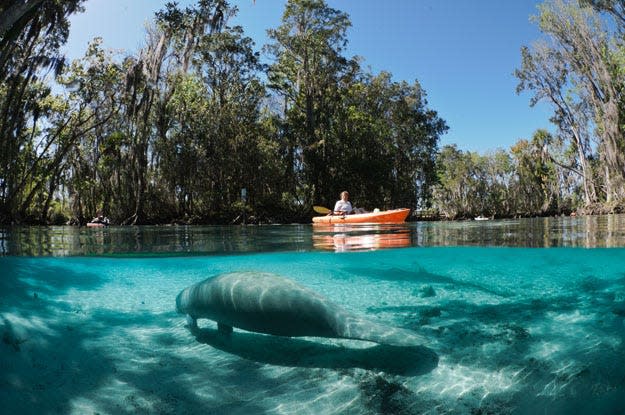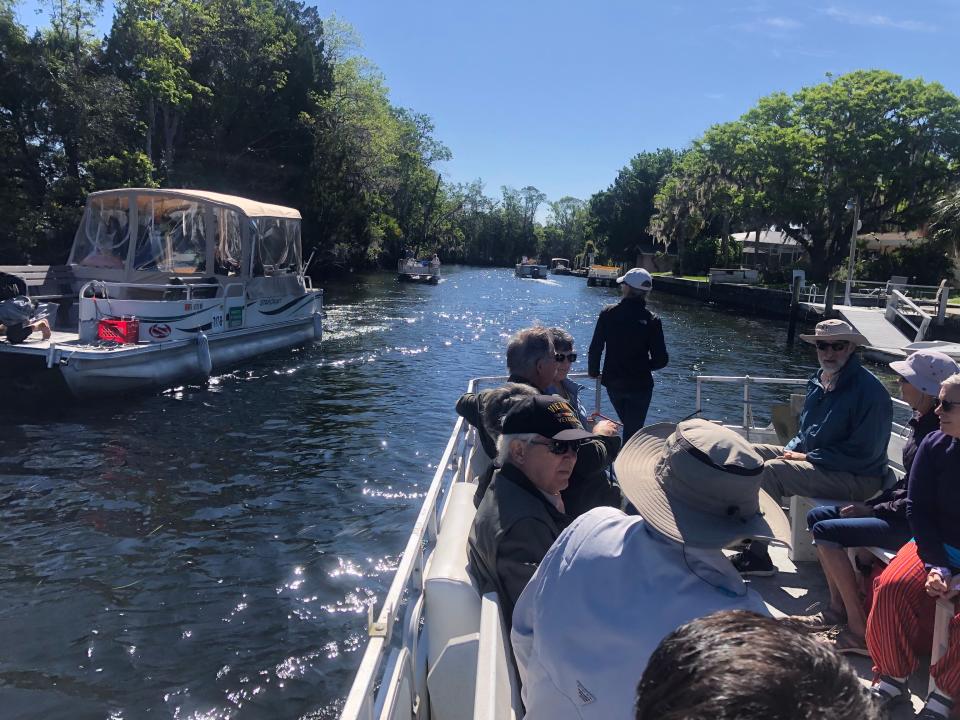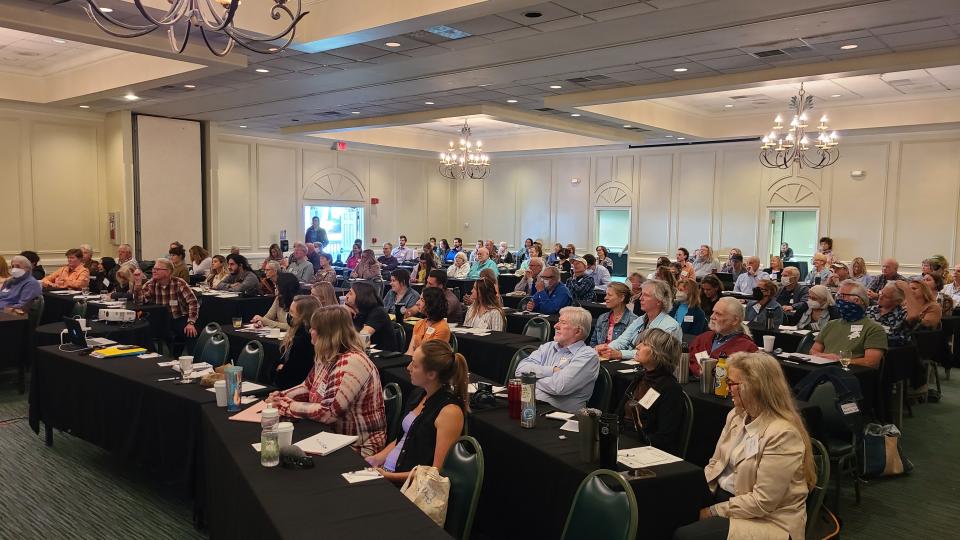The 2022 Springs Summit: information, illusion and inspiration

It was a full house with some 200 people attending free panels and information sessions at the Florida Springs Council’s Springs Summit in Crystal River on April 9-10, 2022. The crowd included springs defenders from throughout Florida; concerned people new to springs discussions; a couple of current and past elected representatives; former board members and former employees of our water management districts; communications experts; and representatives from organizations such as the Sierra Club and Save the Manatee Club.
Sadly, although six different individuals were invited, no current representatives of Florida’s state environmental agencies attended. Those officials in charge of protecting Florida’s springs are apparently unwilling to engage in public discussions about the adequacy of these protections.
The summit opened with a panel that included former Florida Republican state senator David Simmons, who sponsored the “Florida Springs and Aquifer Protection Act” that became law in 2016. Simmons expressed his strong disappointment at implementation of that law, especially that the state had failed in the ensuing six years to define how groundwater pumping could be regulated to avoid harm to the springs.

Bob Knight, executive director of the Howard T. Odum Florida Springs Institute, described how our Outstanding Florida Springs and other “sentinel springs” are polluted and have lost flow. In spite of well-intentioned laws, our springs continue to suffer.
Many reasons for that failure were highlighted in the summit’s closing panel that included Florida state Rep. Anna Eskamani of Orlando. She talked about the workings of the Florida Legislature and how the flow of cash and influence of lobbyists prevent any progress in springs restoration.
One of the panel’s key themes was the need to get legislators and legislative candidates on the record on specific environmental issues, so that voters can distinguish those who understand and care about environmental restoration from those who talk a good game but who provide neither good votes nor needed leadership on springs and other clean water issues.
While speaking on that final panel about the short-term thinking that is prevalent among legislators, Dan Hilliard of Withlacoochee Aquatic Restoration asked a provocative question: “What is the long-term value of natural systems” such as our springs?
More Messages from the Springs Heartland:
Kings Bay restoration requires significantly reducing groundwater pumping
AquiferWatch helps citizens become involved in protecting Florida’s groundwater
SpringsWatch trains citizen scientists to gather data on the health of springs
The opening and closing panels reminded me that our state agencies do a great job of communicating “the illusion of protection” of our springs. Instead of preventing problems from occurring, state government permits those problems and then tries to correct them by spending taxpayers’ money on projects constructed by private businesses.
A recent Florida Springs Council analysis of state spending on springs restoration brings this illusion into even sharper focus — the largest percentage of state money is being spent to try to fix the smallest problems!
But there was inspiration at the summit, too, with dynamic speakers who offered counterpoints to the depressing messages about springs health, legislative inaction and agency ineffectiveness.
Margaret Spontak of the Free the Ocklawaha River Coalition won an individual award for her activism and talked about the coalition’s successful work to change hearts and minds about restoring the Ocklawaha. Our Santa Fe River’s board of directors won an award for outstanding springs organization for their many successful activities that founding member Merrillee Malwitz-Jipson described.

A public interest communications expert offered advice about how advocates can talk about springs health more effectively. Area photographers and media experts gave examples of the roles visual images and social media can play in springs conservation.
Erica Hernandez of Alachua Conservation Trust gave a presentation about land conservation for springs protection. Representatives of Save the Manatee Club talked about how healthy springs are key to the survival of this iconic species. Cris Costello of Sierra Club talked about the “No Roads to Ruin Coalition” and Ryan Smart of the Florida Springs Council led a session on “Springs Advocacy Boot Camp.”
Bob Knight, Rick Copeland of AquiferWatch and Greg Owen of the Alachua County Environmental Protection Department offered updates on their research. David Moritz of the Florida Rights of Nature Network spoke about a new Right to Clean and Healthy Waters state constitutional amendment petition drive.
Three breakout sessions gave people from the St. Johns River Basin, the Suwannee-Santa Fe-Panhandle springs areas and the Nature Coast the chance to focus on specific problems and potential solutions.
If conditions in Florida’s springs continue to decline, that won’t be the fault of our springs defenders. Instead, the fingers of accountability must point to Florida’s elected officials and representatives and their appointed directors of our environmental agencies. Voting in November 2022 gives us a chance to hold those people accountable.
Lucinda Faulkner Merritt is a writer and springs lover who first visited Florida’s springs in the 1950s. She has become acutely aware of increasingly bad conditions in the springs since the 1990s. This column is part of The Sun's Messages from the Springs Heartland series.
Join the conversation
Send a letter to the editor (up to 200 words) to letters@gainesville.com. Letters must include the writer's full name and city of residence. Additional guidelines for submitting letters and longer guest columns can be found at bit.ly/sunopinionguidelines.
Journalism matters. Your support matters.
Get a digital subscription to the Gainesville Sun. Includes must-see content on Gainesville.com and Gatorsports.com, breaking news and updates on all your devices, and access to the eEdition. Visit www.gainesville.com/subscribenow to sign up.
This article originally appeared on The Gainesville Sun: Lucinda Faulkner Merritt: Springs Summit looked at problems, solutions

